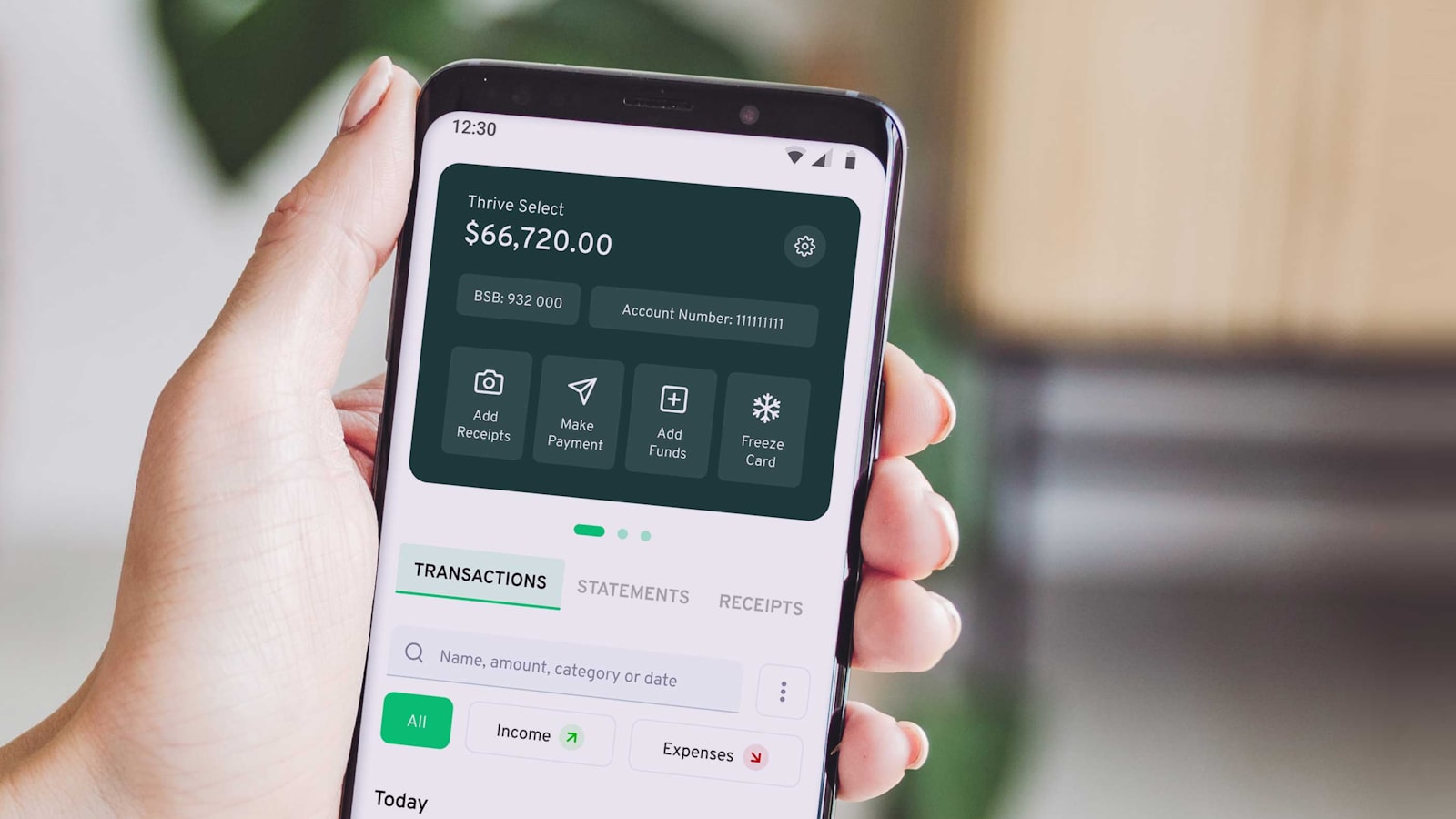ChatGPT and Programmatic SEO
ChatGPT and Programmatic SEO
ChatGPT and Programmatic SEO
Discover how ChatGPT enhances programmatic SEO by automating content creation, improving keyword targeting, and boosting search engine rankings.
Discover how ChatGPT enhances programmatic SEO by automating content creation, improving keyword targeting, and boosting search engine rankings.



Introduction
Overview of ChatGPT and Programmatic SEO
Ever feel like you're stuck in a never-ending loop of SEO strategies that just don’t cut it? Enter ChatGPT and Programmatic SEO – the dynamic duo poised to revolutionize your online game. Imagine having an AI-powered assistant that not only churns out high-quality content but also seamlessly integrates with programmatic SEO techniques to boost your organic traffic. Sounds like a dream, right? Well, pinch yourself because this is the real deal.
Importance and Relevance in Modern SEO Strategies
Why should you care? Good question. In the cutthroat arena of modern SEO strategies, staying ahead means embracing innovation. ChatGPT's natural language prowess combined with the systematic precision of programmatic SEO offers a one-two punch that can elevate your content strategy from mediocre to magnificent. Say goodbye to relying solely on paid ads and hello to sustainable, organic growth. Ready to dive in? Let’s get cracking!
Understanding Programmatic SEO
What is Programmatic SEO?
Programmatic SEO automates the creation of keyword-targeted pages, enabling companies to generate thousands of pages without manual intervention. This technique leverages database information such as product prices, weather data, or location specifics to create content at scale. Companies like Zapier, Zillow, and G2 have successfully used programmatic SEO to attract millions of pageviews annually.
Examples include:
Nomadlist: Creates pages with data on internet speeds, temperatures, and languages for various cities.
Zapier: Generates pages for each software product it integrates with, detailing workflows.
Webflow: Builds landing pages for thousands of website templates.
Wise: Produces pages for currency conversions, each featuring unique data points.
Benefits of Programmatic SEO
Programmatic SEO offers several advantages:
Scalability: Automates the creation of thousands of pages, saving time and resources.
Consistency: Ensures uniformity across pages, enhancing user experience.
Targeted Traffic: Attracts visitors looking for specific information, increasing the likelihood of conversions.
Data Utilization: Leverages existing data to create relevant content, improving SEO performance.
For more on how AI tools enhance programmatic SEO for eCommerce, check out this article.
Challenges and Considerations
While programmatic SEO has its perks, it comes with challenges:
Thin Content: Risk of creating pages with insufficient information, which Google may consider spam.
Data Quality: Requires accurate and relevant data to ensure the content meets user intent.
Technical Complexity: Involves managing large datasets and integrating them with content management systems.
SEO Risks: Potential for creating doorway pages that offer no real value, leading to penalties.
To mitigate these risks, focus on generating high-quality, engaging content that satisfies user intent. For insights on personalizing programmatic SEO for B2B SaaS companies, visit this resource.

Leveraging ChatGPT for Programmatic SEO
Keyword Research and Modifiers
How ChatGPT can assist in finding keyword variations
ChatGPT can be a game-changer for keyword research. By generating a variety of keyword variations, it helps you cover all possible search queries your audience might use. This ensures your content is optimized for a broader range of searches.
Practical examples and prompts
Here are some prompts you can use with ChatGPT to find keyword variations:
Basic Prompt: Generate keyword variations for 'programmatic SEO tools'.
Advanced Prompt: List long-tail keywords related to 'ecommerce SEO strategies'.
Competitive Analysis Prompt: What keywords are my competitors using for 'SaaS SEO'?
These prompts will help you discover a wide array of keywords, enhancing your SEO strategy.
Creating Keyword and Topic Clusters
Using ChatGPT to categorize and cluster keywords
Creating keyword clusters is crucial for organizing your content. ChatGPT can categorize keywords into clusters, making it easier to create targeted content.
Step-by-step guide with examples
Follow these steps to create keyword clusters with ChatGPT:
Step 1: List your primary keywords. For example, SEO tools, keyword research, and content optimization.
Step 2: Use a prompt like Cluster these keywords into related groups.
Step 3: Review the clusters generated by ChatGPT. For example, SEO tools might group with best SEO software and SEO automation tools.
Step 4: Use these clusters to structure your content strategy.
This method ensures your content is well-organized and covers all relevant topics.
Data Collection and Dataset Creation
Generating datasets with ChatGPT
ChatGPT can also assist in generating datasets for your SEO efforts. By providing comprehensive data, it helps you make informed decisions.
Validating and verifying data accuracy
While ChatGPT is powerful, it's essential to validate the data it generates. Cross-referencing with reliable sources ensures accuracy and reliability.
Content Generation and Optimization
Writing introductions, descriptions, and FAQs
ChatGPT excels in creating engaging content. Whether you need introductions, product descriptions, or FAQs, it can generate high-quality text quickly.
Enhancing existing content with ChatGPT
Enhance your current content by using ChatGPT to add depth and detail. For instance, you can prompt it to expand on the benefits of programmatic SEO.
Practical prompts and examples
Here are some prompts to optimize your content:
Introduction Prompt: Write an engaging introduction for an article on 'programmatic SEO benefits'.
Description Prompt: Describe the features of 'AI SEO tools' in detail.
FAQ Prompt: Generate FAQs for 'using ChatGPT for SEO'.
These prompts ensure your content is comprehensive and valuable to your audience.

For more insights on how AI tools can enhance your programmatic SEO, check out this guide.
Advanced Applications of ChatGPT in Programmatic SEO
Automating Google Sheets and Excel Tasks
ChatGPT can be a game-changer when it comes to automating tasks in Google Sheets and Excel. By leveraging its capabilities, you can streamline your data management processes and save significant time.
Writing Complex Formulas with ChatGPT
Writing complex formulas can be daunting, but ChatGPT simplifies this process. Whether you need to create nested IF statements or advanced VLOOKUPs, ChatGPT has got you covered. Here are some practical examples:
Text to Slug Conversion: =LOWER(SUBSTITUTE(A1, , -))
Conditional Formatting: =IF(B1>100, High, Low)
Dynamic Range Selection: =OFFSET(A1, 0, 0, COUNTA(A:A), 1)
These formulas can be generated quickly, allowing you to focus on more strategic tasks.
Practical Use Cases and Examples
Consider a scenario where you're managing a large dataset of e-commerce products. ChatGPT can help you:
Generate formulas to calculate sales tax based on different regions.
Create pivot tables to summarize sales data.
Automate data validation to ensure accuracy.
These practical applications can significantly enhance your efficiency and accuracy in data management.
Writing Code Snippets
Generating Python and JavaScript Code for Web Scraping
ChatGPT can also assist in writing code snippets for web scraping tasks. Whether you're working with Python or JavaScript, ChatGPT can generate code to extract valuable data from websites.
Here’s a simple Python example for web scraping using BeautifulSoup:
import requests
from bs4 import BeautifulSoup
url = 'https://example.com'
response = requests.get(url)
soup = BeautifulSoup(response.text, 'html.parser')
titles = soup.find_all('h2')
for title in titles:
print(title.text)
And a JavaScript example using Puppeteer:
const puppeteer = require('puppeteer');
(async () => {
const browser = await puppeteer.launch();
const page = await browser.newPage();
await page.goto('https://example.com');
const titles = await page.evaluate(() => {
return Array.from(document.querySelectorAll('h2')).map(title => title.textContent);
});
console.log(titles);
await browser.close();
})();
Ensuring Compliance with Legal and Ethical Standards
While using web scraping, it's crucial to stay compliant with legal and ethical standards. Always check the website's robots.txt file and terms of service to ensure you're not violating any rules.
Creating Meta Titles, Descriptions, and Schema Markup
Customizing Meta Tags with ChatGPT
Meta tags are essential for SEO, and ChatGPT can help you create customized meta titles and descriptions that improve your search engine rankings. For instance:
Meta Title: Best Running Shoes for 2023 | Top Picks and Reviews
Meta Description: Discover the best running shoes for 2023 with our top picks and in-depth reviews. Find the perfect pair for your running style and needs.
Implementing Schema Markup for Enhanced SEO
Schema markup helps search engines understand your content better. ChatGPT can generate various schema markups, including FAQ and how-to schemas. Here’s an example of an FAQ schema:
{
"@context": "https://schema.org",
"@type": "FAQPage",
"mainEntity": [{
"@type": "Question",
"name": "What is Programmatic SEO?",
"acceptedAnswer": {
"@type": "Answer",
"text": "Programmatic SEO involves using automation to create and optimize large volumes of content for search engines."
}
}, {
"@type": "Question",
"name": "How can ChatGPT assist in Programmatic SEO?",
"acceptedAnswer": {
"@type": "Answer",
"text": "ChatGPT can help with keyword research, content generation, and data collection, making the SEO process more efficient."
}
}]
}
Implementing schema markup can significantly enhance your site's visibility in search results.

Case Studies and Real-World Examples
Successful Implementations
Case studies are invaluable for showcasing the practical benefits of ChatGPT and Programmatic SEO. Let's dive into some real-world examples that demonstrate their effectiveness.
Detailed Case Studies Showcasing Results
Georgia Tech Athletics: By using Salesloft, Georgia Tech Athletics increased season ticket sales by 80%. This case highlights the power of targeted outreach and personalized communication.
WeightWatchers: Revamping their sales process with HubSpot, WeightWatchers achieved a seven-figure annual contract value. This example underscores the importance of streamlined workflows and efficient CRM systems.
Immi: Leveraging Shopify Collabs, Immi drove over $200k in sales. This case study illustrates the potential of influencer marketing and strategic partnerships.
Lessons Learned and Best Practices
From these case studies, several best practices emerge:
Use compelling narratives: Tell a story that resonates with your audience.
Incorporate visuals and data: Use charts, graphs, and images to support your points.
Include customer testimonials: Real quotes from satisfied customers add credibility.
Provide clear, actionable CTAs: Guide your readers on the next steps they should take.
Common Pitfalls and How to Avoid Them
Identifying and Mitigating Risks
While implementing ChatGPT and Programmatic SEO, it's crucial to be aware of common pitfalls. Here are some risks and how to mitigate them:
Over-reliance on automation: Balance automated processes with human oversight to ensure quality.
Data accuracy: Regularly validate and verify your datasets to maintain accuracy. Learn more about this in our guide on using AI tools to enhance Programmatic SEO for ecommerce.
Legal and ethical compliance: Ensure your web scraping and data collection practices comply with legal standards. Check out our article on how AI is shaping the future of SEO for SaaS companies for more insights.
Ensuring High-Quality and Valuable Content
To maintain high standards, focus on the following:
Thorough research: Base your content on well-researched data and insights.
Engaging writing: Keep your audience engaged with clear, concise, and interesting content.
Regular updates: Continuously update your content to reflect the latest trends and information. For more tips, visit our article on using machine learning in ecommerce Programmatic SEO.

Tools and Resources for Programmatic SEO

Essential Tools for Keyword Research and Data Collection
Effective keyword research and data collection are the backbones of successful programmatic SEO. Here are some indispensable tools:
Google Keyword Planner: A free tool that provides keyword ideas and traffic estimates.
Ahrefs: Offers comprehensive keyword data, including search volume, keyword difficulty, and more.
SEMrush: A powerful tool for keyword research, competitor analysis, and tracking keyword rankings.
Ubersuggest: Provides keyword suggestions, content ideas, and SEO insights.
AnswerThePublic: Generates search queries and questions that people are asking around your keywords.
For more on using AI tools to enhance programmatic SEO, check out this detailed guide.
Recommended AI and SEO Tools
AI and machine learning tools are revolutionizing SEO. Here are some top recommendations:
ChatGPT: Use it for keyword research, content generation, and creating topic clusters.
Surfer SEO: Analyzes the top-ranking pages and provides recommendations for optimizing your content.
MarketMuse: Uses AI to assist with content planning, optimization, and competitive analysis.
Frase: Helps in creating content that answers users' questions by analyzing search results.
Clearscope: Provides insights on how to optimize content for better search performance.
Learn more about how AI is shaping the future of SEO for SaaS companies in this comprehensive article.
Automation Ideas with Zapier and Make.com
Automation can save you time and streamline your SEO processes. Here are some ideas:
Automate Reporting: Use Zapier to connect Google Analytics with Google Sheets for automated reporting.
Content Distribution: Automate the sharing of new blog posts on social media platforms using Make.com.
Data Collection: Set up Zaps to collect and organize data from various sources into a single spreadsheet.
SEO Audits: Automate the process of running SEO audits and sending the results to your team.
Task Management: Use automation to create tasks in project management tools like Trello or Asana based on specific triggers.
For more automation ideas, check out this guide on using machine learning in ecommerce programmatic SEO.
Conclusion
Recap of Key Points
Throughout this article, we've explored how ChatGPT can be a game-changer in the realm of Programmatic SEO. We covered:
Understanding Programmatic SEO: What it is and its benefits.
Leveraging ChatGPT: From keyword research to content generation.
Advanced Applications: Automating tasks and writing code snippets.
Case Studies: Real-world examples and lessons learned.
Tools and Resources: Essential tools for effective SEO strategies.
Future Trends and Developments in Programmatic SEO and AI
As we look ahead, the integration of AI in SEO is set to grow even more sophisticated. Here are some trends to watch:
Enhanced Personalization: AI will enable more tailored content experiences for users. For more insights, check out our article on personalizing programmatic SEO for B2B SaaS companies.
Improved Data Analysis: Machine learning will refine data collection and analysis processes, helping businesses make better decisions.
Automation of Complex Tasks: Expect more tools that automate intricate SEO tasks, boosting efficiency. Learn more about using AI tools to enhance programmatic SEO for eCommerce here.
Voice Search Optimization: As voice search becomes more prevalent, optimizing for conversational queries will be crucial.
Final Thoughts and Recommendations
To stay ahead in the SEO game, it's essential to embrace AI and programmatic approaches. Here are some final tips:
Stay Updated: Keep an eye on the latest trends and tools in AI and SEO.
Invest in Training: Equip your team with the skills needed to leverage AI effectively.
Experiment and Adapt: Continuously test new strategies and adapt based on performance.
For more detailed strategies, explore our guide on creating a scalable programmatic SEO plan for SaaS.

FAQs
Common questions and answers about using ChatGPT for Programmatic SEO

1. How can ChatGPT assist in keyword research for Programmatic SEO?
ChatGPT can generate a variety of keyword suggestions and modifiers based on your initial input. By using prompts, you can uncover long-tail keywords and related terms that might not be immediately obvious. This helps in creating comprehensive keyword lists for your SEO strategy.
For more on using AI tools for keyword research, check out our detailed guide on enhancing Programmatic SEO for eCommerce.
2. Can ChatGPT help in creating content clusters?
Absolutely! ChatGPT can categorize and cluster keywords into relevant topics, making it easier to plan your content strategy. By organizing keywords into clusters, you can create more structured and interlinked content that improves SEO performance.
Learn more about this in our article on personalizing Programmatic SEO for B2B SaaS companies.
3. How reliable is the data generated by ChatGPT for SEO purposes?
While ChatGPT is a powerful tool, it's essential to validate the data it generates. Cross-referencing with other SEO tools and manual checks can ensure accuracy and relevance. This helps in maintaining high-quality and valuable content.
For tips on ensuring data accuracy, visit our guide on using machine learning in ecommerce Programmatic SEO.
4. Can ChatGPT automate tasks in Google Sheets and Excel for SEO purposes?
Yes, ChatGPT can help write complex formulas and automate repetitive tasks in Google Sheets and Excel. This can save time and reduce errors in data handling, making your SEO efforts more efficient.
Explore practical examples in our post on creating a scalable Programmatic SEO plan for SaaS.
Additional resources and further reading
Introduction
Overview of ChatGPT and Programmatic SEO
Ever feel like you're stuck in a never-ending loop of SEO strategies that just don’t cut it? Enter ChatGPT and Programmatic SEO – the dynamic duo poised to revolutionize your online game. Imagine having an AI-powered assistant that not only churns out high-quality content but also seamlessly integrates with programmatic SEO techniques to boost your organic traffic. Sounds like a dream, right? Well, pinch yourself because this is the real deal.
Importance and Relevance in Modern SEO Strategies
Why should you care? Good question. In the cutthroat arena of modern SEO strategies, staying ahead means embracing innovation. ChatGPT's natural language prowess combined with the systematic precision of programmatic SEO offers a one-two punch that can elevate your content strategy from mediocre to magnificent. Say goodbye to relying solely on paid ads and hello to sustainable, organic growth. Ready to dive in? Let’s get cracking!
Understanding Programmatic SEO
What is Programmatic SEO?
Programmatic SEO automates the creation of keyword-targeted pages, enabling companies to generate thousands of pages without manual intervention. This technique leverages database information such as product prices, weather data, or location specifics to create content at scale. Companies like Zapier, Zillow, and G2 have successfully used programmatic SEO to attract millions of pageviews annually.
Examples include:
Nomadlist: Creates pages with data on internet speeds, temperatures, and languages for various cities.
Zapier: Generates pages for each software product it integrates with, detailing workflows.
Webflow: Builds landing pages for thousands of website templates.
Wise: Produces pages for currency conversions, each featuring unique data points.
Benefits of Programmatic SEO
Programmatic SEO offers several advantages:
Scalability: Automates the creation of thousands of pages, saving time and resources.
Consistency: Ensures uniformity across pages, enhancing user experience.
Targeted Traffic: Attracts visitors looking for specific information, increasing the likelihood of conversions.
Data Utilization: Leverages existing data to create relevant content, improving SEO performance.
For more on how AI tools enhance programmatic SEO for eCommerce, check out this article.
Challenges and Considerations
While programmatic SEO has its perks, it comes with challenges:
Thin Content: Risk of creating pages with insufficient information, which Google may consider spam.
Data Quality: Requires accurate and relevant data to ensure the content meets user intent.
Technical Complexity: Involves managing large datasets and integrating them with content management systems.
SEO Risks: Potential for creating doorway pages that offer no real value, leading to penalties.
To mitigate these risks, focus on generating high-quality, engaging content that satisfies user intent. For insights on personalizing programmatic SEO for B2B SaaS companies, visit this resource.

Leveraging ChatGPT for Programmatic SEO
Keyword Research and Modifiers
How ChatGPT can assist in finding keyword variations
ChatGPT can be a game-changer for keyword research. By generating a variety of keyword variations, it helps you cover all possible search queries your audience might use. This ensures your content is optimized for a broader range of searches.
Practical examples and prompts
Here are some prompts you can use with ChatGPT to find keyword variations:
Basic Prompt: Generate keyword variations for 'programmatic SEO tools'.
Advanced Prompt: List long-tail keywords related to 'ecommerce SEO strategies'.
Competitive Analysis Prompt: What keywords are my competitors using for 'SaaS SEO'?
These prompts will help you discover a wide array of keywords, enhancing your SEO strategy.
Creating Keyword and Topic Clusters
Using ChatGPT to categorize and cluster keywords
Creating keyword clusters is crucial for organizing your content. ChatGPT can categorize keywords into clusters, making it easier to create targeted content.
Step-by-step guide with examples
Follow these steps to create keyword clusters with ChatGPT:
Step 1: List your primary keywords. For example, SEO tools, keyword research, and content optimization.
Step 2: Use a prompt like Cluster these keywords into related groups.
Step 3: Review the clusters generated by ChatGPT. For example, SEO tools might group with best SEO software and SEO automation tools.
Step 4: Use these clusters to structure your content strategy.
This method ensures your content is well-organized and covers all relevant topics.
Data Collection and Dataset Creation
Generating datasets with ChatGPT
ChatGPT can also assist in generating datasets for your SEO efforts. By providing comprehensive data, it helps you make informed decisions.
Validating and verifying data accuracy
While ChatGPT is powerful, it's essential to validate the data it generates. Cross-referencing with reliable sources ensures accuracy and reliability.
Content Generation and Optimization
Writing introductions, descriptions, and FAQs
ChatGPT excels in creating engaging content. Whether you need introductions, product descriptions, or FAQs, it can generate high-quality text quickly.
Enhancing existing content with ChatGPT
Enhance your current content by using ChatGPT to add depth and detail. For instance, you can prompt it to expand on the benefits of programmatic SEO.
Practical prompts and examples
Here are some prompts to optimize your content:
Introduction Prompt: Write an engaging introduction for an article on 'programmatic SEO benefits'.
Description Prompt: Describe the features of 'AI SEO tools' in detail.
FAQ Prompt: Generate FAQs for 'using ChatGPT for SEO'.
These prompts ensure your content is comprehensive and valuable to your audience.

For more insights on how AI tools can enhance your programmatic SEO, check out this guide.
Advanced Applications of ChatGPT in Programmatic SEO
Automating Google Sheets and Excel Tasks
ChatGPT can be a game-changer when it comes to automating tasks in Google Sheets and Excel. By leveraging its capabilities, you can streamline your data management processes and save significant time.
Writing Complex Formulas with ChatGPT
Writing complex formulas can be daunting, but ChatGPT simplifies this process. Whether you need to create nested IF statements or advanced VLOOKUPs, ChatGPT has got you covered. Here are some practical examples:
Text to Slug Conversion: =LOWER(SUBSTITUTE(A1, , -))
Conditional Formatting: =IF(B1>100, High, Low)
Dynamic Range Selection: =OFFSET(A1, 0, 0, COUNTA(A:A), 1)
These formulas can be generated quickly, allowing you to focus on more strategic tasks.
Practical Use Cases and Examples
Consider a scenario where you're managing a large dataset of e-commerce products. ChatGPT can help you:
Generate formulas to calculate sales tax based on different regions.
Create pivot tables to summarize sales data.
Automate data validation to ensure accuracy.
These practical applications can significantly enhance your efficiency and accuracy in data management.
Writing Code Snippets
Generating Python and JavaScript Code for Web Scraping
ChatGPT can also assist in writing code snippets for web scraping tasks. Whether you're working with Python or JavaScript, ChatGPT can generate code to extract valuable data from websites.
Here’s a simple Python example for web scraping using BeautifulSoup:
import requests
from bs4 import BeautifulSoup
url = 'https://example.com'
response = requests.get(url)
soup = BeautifulSoup(response.text, 'html.parser')
titles = soup.find_all('h2')
for title in titles:
print(title.text)
And a JavaScript example using Puppeteer:
const puppeteer = require('puppeteer');
(async () => {
const browser = await puppeteer.launch();
const page = await browser.newPage();
await page.goto('https://example.com');
const titles = await page.evaluate(() => {
return Array.from(document.querySelectorAll('h2')).map(title => title.textContent);
});
console.log(titles);
await browser.close();
})();
Ensuring Compliance with Legal and Ethical Standards
While using web scraping, it's crucial to stay compliant with legal and ethical standards. Always check the website's robots.txt file and terms of service to ensure you're not violating any rules.
Creating Meta Titles, Descriptions, and Schema Markup
Customizing Meta Tags with ChatGPT
Meta tags are essential for SEO, and ChatGPT can help you create customized meta titles and descriptions that improve your search engine rankings. For instance:
Meta Title: Best Running Shoes for 2023 | Top Picks and Reviews
Meta Description: Discover the best running shoes for 2023 with our top picks and in-depth reviews. Find the perfect pair for your running style and needs.
Implementing Schema Markup for Enhanced SEO
Schema markup helps search engines understand your content better. ChatGPT can generate various schema markups, including FAQ and how-to schemas. Here’s an example of an FAQ schema:
{
"@context": "https://schema.org",
"@type": "FAQPage",
"mainEntity": [{
"@type": "Question",
"name": "What is Programmatic SEO?",
"acceptedAnswer": {
"@type": "Answer",
"text": "Programmatic SEO involves using automation to create and optimize large volumes of content for search engines."
}
}, {
"@type": "Question",
"name": "How can ChatGPT assist in Programmatic SEO?",
"acceptedAnswer": {
"@type": "Answer",
"text": "ChatGPT can help with keyword research, content generation, and data collection, making the SEO process more efficient."
}
}]
}
Implementing schema markup can significantly enhance your site's visibility in search results.

Case Studies and Real-World Examples
Successful Implementations
Case studies are invaluable for showcasing the practical benefits of ChatGPT and Programmatic SEO. Let's dive into some real-world examples that demonstrate their effectiveness.
Detailed Case Studies Showcasing Results
Georgia Tech Athletics: By using Salesloft, Georgia Tech Athletics increased season ticket sales by 80%. This case highlights the power of targeted outreach and personalized communication.
WeightWatchers: Revamping their sales process with HubSpot, WeightWatchers achieved a seven-figure annual contract value. This example underscores the importance of streamlined workflows and efficient CRM systems.
Immi: Leveraging Shopify Collabs, Immi drove over $200k in sales. This case study illustrates the potential of influencer marketing and strategic partnerships.
Lessons Learned and Best Practices
From these case studies, several best practices emerge:
Use compelling narratives: Tell a story that resonates with your audience.
Incorporate visuals and data: Use charts, graphs, and images to support your points.
Include customer testimonials: Real quotes from satisfied customers add credibility.
Provide clear, actionable CTAs: Guide your readers on the next steps they should take.
Common Pitfalls and How to Avoid Them
Identifying and Mitigating Risks
While implementing ChatGPT and Programmatic SEO, it's crucial to be aware of common pitfalls. Here are some risks and how to mitigate them:
Over-reliance on automation: Balance automated processes with human oversight to ensure quality.
Data accuracy: Regularly validate and verify your datasets to maintain accuracy. Learn more about this in our guide on using AI tools to enhance Programmatic SEO for ecommerce.
Legal and ethical compliance: Ensure your web scraping and data collection practices comply with legal standards. Check out our article on how AI is shaping the future of SEO for SaaS companies for more insights.
Ensuring High-Quality and Valuable Content
To maintain high standards, focus on the following:
Thorough research: Base your content on well-researched data and insights.
Engaging writing: Keep your audience engaged with clear, concise, and interesting content.
Regular updates: Continuously update your content to reflect the latest trends and information. For more tips, visit our article on using machine learning in ecommerce Programmatic SEO.

Tools and Resources for Programmatic SEO

Essential Tools for Keyword Research and Data Collection
Effective keyword research and data collection are the backbones of successful programmatic SEO. Here are some indispensable tools:
Google Keyword Planner: A free tool that provides keyword ideas and traffic estimates.
Ahrefs: Offers comprehensive keyword data, including search volume, keyword difficulty, and more.
SEMrush: A powerful tool for keyword research, competitor analysis, and tracking keyword rankings.
Ubersuggest: Provides keyword suggestions, content ideas, and SEO insights.
AnswerThePublic: Generates search queries and questions that people are asking around your keywords.
For more on using AI tools to enhance programmatic SEO, check out this detailed guide.
Recommended AI and SEO Tools
AI and machine learning tools are revolutionizing SEO. Here are some top recommendations:
ChatGPT: Use it for keyword research, content generation, and creating topic clusters.
Surfer SEO: Analyzes the top-ranking pages and provides recommendations for optimizing your content.
MarketMuse: Uses AI to assist with content planning, optimization, and competitive analysis.
Frase: Helps in creating content that answers users' questions by analyzing search results.
Clearscope: Provides insights on how to optimize content for better search performance.
Learn more about how AI is shaping the future of SEO for SaaS companies in this comprehensive article.
Automation Ideas with Zapier and Make.com
Automation can save you time and streamline your SEO processes. Here are some ideas:
Automate Reporting: Use Zapier to connect Google Analytics with Google Sheets for automated reporting.
Content Distribution: Automate the sharing of new blog posts on social media platforms using Make.com.
Data Collection: Set up Zaps to collect and organize data from various sources into a single spreadsheet.
SEO Audits: Automate the process of running SEO audits and sending the results to your team.
Task Management: Use automation to create tasks in project management tools like Trello or Asana based on specific triggers.
For more automation ideas, check out this guide on using machine learning in ecommerce programmatic SEO.
Conclusion
Recap of Key Points
Throughout this article, we've explored how ChatGPT can be a game-changer in the realm of Programmatic SEO. We covered:
Understanding Programmatic SEO: What it is and its benefits.
Leveraging ChatGPT: From keyword research to content generation.
Advanced Applications: Automating tasks and writing code snippets.
Case Studies: Real-world examples and lessons learned.
Tools and Resources: Essential tools for effective SEO strategies.
Future Trends and Developments in Programmatic SEO and AI
As we look ahead, the integration of AI in SEO is set to grow even more sophisticated. Here are some trends to watch:
Enhanced Personalization: AI will enable more tailored content experiences for users. For more insights, check out our article on personalizing programmatic SEO for B2B SaaS companies.
Improved Data Analysis: Machine learning will refine data collection and analysis processes, helping businesses make better decisions.
Automation of Complex Tasks: Expect more tools that automate intricate SEO tasks, boosting efficiency. Learn more about using AI tools to enhance programmatic SEO for eCommerce here.
Voice Search Optimization: As voice search becomes more prevalent, optimizing for conversational queries will be crucial.
Final Thoughts and Recommendations
To stay ahead in the SEO game, it's essential to embrace AI and programmatic approaches. Here are some final tips:
Stay Updated: Keep an eye on the latest trends and tools in AI and SEO.
Invest in Training: Equip your team with the skills needed to leverage AI effectively.
Experiment and Adapt: Continuously test new strategies and adapt based on performance.
For more detailed strategies, explore our guide on creating a scalable programmatic SEO plan for SaaS.

FAQs
Common questions and answers about using ChatGPT for Programmatic SEO

1. How can ChatGPT assist in keyword research for Programmatic SEO?
ChatGPT can generate a variety of keyword suggestions and modifiers based on your initial input. By using prompts, you can uncover long-tail keywords and related terms that might not be immediately obvious. This helps in creating comprehensive keyword lists for your SEO strategy.
For more on using AI tools for keyword research, check out our detailed guide on enhancing Programmatic SEO for eCommerce.
2. Can ChatGPT help in creating content clusters?
Absolutely! ChatGPT can categorize and cluster keywords into relevant topics, making it easier to plan your content strategy. By organizing keywords into clusters, you can create more structured and interlinked content that improves SEO performance.
Learn more about this in our article on personalizing Programmatic SEO for B2B SaaS companies.
3. How reliable is the data generated by ChatGPT for SEO purposes?
While ChatGPT is a powerful tool, it's essential to validate the data it generates. Cross-referencing with other SEO tools and manual checks can ensure accuracy and relevance. This helps in maintaining high-quality and valuable content.
For tips on ensuring data accuracy, visit our guide on using machine learning in ecommerce Programmatic SEO.
4. Can ChatGPT automate tasks in Google Sheets and Excel for SEO purposes?
Yes, ChatGPT can help write complex formulas and automate repetitive tasks in Google Sheets and Excel. This can save time and reduce errors in data handling, making your SEO efforts more efficient.
Explore practical examples in our post on creating a scalable Programmatic SEO plan for SaaS.
Additional resources and further reading
Introduction
Overview of ChatGPT and Programmatic SEO
Ever feel like you're stuck in a never-ending loop of SEO strategies that just don’t cut it? Enter ChatGPT and Programmatic SEO – the dynamic duo poised to revolutionize your online game. Imagine having an AI-powered assistant that not only churns out high-quality content but also seamlessly integrates with programmatic SEO techniques to boost your organic traffic. Sounds like a dream, right? Well, pinch yourself because this is the real deal.
Importance and Relevance in Modern SEO Strategies
Why should you care? Good question. In the cutthroat arena of modern SEO strategies, staying ahead means embracing innovation. ChatGPT's natural language prowess combined with the systematic precision of programmatic SEO offers a one-two punch that can elevate your content strategy from mediocre to magnificent. Say goodbye to relying solely on paid ads and hello to sustainable, organic growth. Ready to dive in? Let’s get cracking!
Understanding Programmatic SEO
What is Programmatic SEO?
Programmatic SEO automates the creation of keyword-targeted pages, enabling companies to generate thousands of pages without manual intervention. This technique leverages database information such as product prices, weather data, or location specifics to create content at scale. Companies like Zapier, Zillow, and G2 have successfully used programmatic SEO to attract millions of pageviews annually.
Examples include:
Nomadlist: Creates pages with data on internet speeds, temperatures, and languages for various cities.
Zapier: Generates pages for each software product it integrates with, detailing workflows.
Webflow: Builds landing pages for thousands of website templates.
Wise: Produces pages for currency conversions, each featuring unique data points.
Benefits of Programmatic SEO
Programmatic SEO offers several advantages:
Scalability: Automates the creation of thousands of pages, saving time and resources.
Consistency: Ensures uniformity across pages, enhancing user experience.
Targeted Traffic: Attracts visitors looking for specific information, increasing the likelihood of conversions.
Data Utilization: Leverages existing data to create relevant content, improving SEO performance.
For more on how AI tools enhance programmatic SEO for eCommerce, check out this article.
Challenges and Considerations
While programmatic SEO has its perks, it comes with challenges:
Thin Content: Risk of creating pages with insufficient information, which Google may consider spam.
Data Quality: Requires accurate and relevant data to ensure the content meets user intent.
Technical Complexity: Involves managing large datasets and integrating them with content management systems.
SEO Risks: Potential for creating doorway pages that offer no real value, leading to penalties.
To mitigate these risks, focus on generating high-quality, engaging content that satisfies user intent. For insights on personalizing programmatic SEO for B2B SaaS companies, visit this resource.

Leveraging ChatGPT for Programmatic SEO
Keyword Research and Modifiers
How ChatGPT can assist in finding keyword variations
ChatGPT can be a game-changer for keyword research. By generating a variety of keyword variations, it helps you cover all possible search queries your audience might use. This ensures your content is optimized for a broader range of searches.
Practical examples and prompts
Here are some prompts you can use with ChatGPT to find keyword variations:
Basic Prompt: Generate keyword variations for 'programmatic SEO tools'.
Advanced Prompt: List long-tail keywords related to 'ecommerce SEO strategies'.
Competitive Analysis Prompt: What keywords are my competitors using for 'SaaS SEO'?
These prompts will help you discover a wide array of keywords, enhancing your SEO strategy.
Creating Keyword and Topic Clusters
Using ChatGPT to categorize and cluster keywords
Creating keyword clusters is crucial for organizing your content. ChatGPT can categorize keywords into clusters, making it easier to create targeted content.
Step-by-step guide with examples
Follow these steps to create keyword clusters with ChatGPT:
Step 1: List your primary keywords. For example, SEO tools, keyword research, and content optimization.
Step 2: Use a prompt like Cluster these keywords into related groups.
Step 3: Review the clusters generated by ChatGPT. For example, SEO tools might group with best SEO software and SEO automation tools.
Step 4: Use these clusters to structure your content strategy.
This method ensures your content is well-organized and covers all relevant topics.
Data Collection and Dataset Creation
Generating datasets with ChatGPT
ChatGPT can also assist in generating datasets for your SEO efforts. By providing comprehensive data, it helps you make informed decisions.
Validating and verifying data accuracy
While ChatGPT is powerful, it's essential to validate the data it generates. Cross-referencing with reliable sources ensures accuracy and reliability.
Content Generation and Optimization
Writing introductions, descriptions, and FAQs
ChatGPT excels in creating engaging content. Whether you need introductions, product descriptions, or FAQs, it can generate high-quality text quickly.
Enhancing existing content with ChatGPT
Enhance your current content by using ChatGPT to add depth and detail. For instance, you can prompt it to expand on the benefits of programmatic SEO.
Practical prompts and examples
Here are some prompts to optimize your content:
Introduction Prompt: Write an engaging introduction for an article on 'programmatic SEO benefits'.
Description Prompt: Describe the features of 'AI SEO tools' in detail.
FAQ Prompt: Generate FAQs for 'using ChatGPT for SEO'.
These prompts ensure your content is comprehensive and valuable to your audience.

For more insights on how AI tools can enhance your programmatic SEO, check out this guide.
Advanced Applications of ChatGPT in Programmatic SEO
Automating Google Sheets and Excel Tasks
ChatGPT can be a game-changer when it comes to automating tasks in Google Sheets and Excel. By leveraging its capabilities, you can streamline your data management processes and save significant time.
Writing Complex Formulas with ChatGPT
Writing complex formulas can be daunting, but ChatGPT simplifies this process. Whether you need to create nested IF statements or advanced VLOOKUPs, ChatGPT has got you covered. Here are some practical examples:
Text to Slug Conversion: =LOWER(SUBSTITUTE(A1, , -))
Conditional Formatting: =IF(B1>100, High, Low)
Dynamic Range Selection: =OFFSET(A1, 0, 0, COUNTA(A:A), 1)
These formulas can be generated quickly, allowing you to focus on more strategic tasks.
Practical Use Cases and Examples
Consider a scenario where you're managing a large dataset of e-commerce products. ChatGPT can help you:
Generate formulas to calculate sales tax based on different regions.
Create pivot tables to summarize sales data.
Automate data validation to ensure accuracy.
These practical applications can significantly enhance your efficiency and accuracy in data management.
Writing Code Snippets
Generating Python and JavaScript Code for Web Scraping
ChatGPT can also assist in writing code snippets for web scraping tasks. Whether you're working with Python or JavaScript, ChatGPT can generate code to extract valuable data from websites.
Here’s a simple Python example for web scraping using BeautifulSoup:
import requests
from bs4 import BeautifulSoup
url = 'https://example.com'
response = requests.get(url)
soup = BeautifulSoup(response.text, 'html.parser')
titles = soup.find_all('h2')
for title in titles:
print(title.text)
And a JavaScript example using Puppeteer:
const puppeteer = require('puppeteer');
(async () => {
const browser = await puppeteer.launch();
const page = await browser.newPage();
await page.goto('https://example.com');
const titles = await page.evaluate(() => {
return Array.from(document.querySelectorAll('h2')).map(title => title.textContent);
});
console.log(titles);
await browser.close();
})();
Ensuring Compliance with Legal and Ethical Standards
While using web scraping, it's crucial to stay compliant with legal and ethical standards. Always check the website's robots.txt file and terms of service to ensure you're not violating any rules.
Creating Meta Titles, Descriptions, and Schema Markup
Customizing Meta Tags with ChatGPT
Meta tags are essential for SEO, and ChatGPT can help you create customized meta titles and descriptions that improve your search engine rankings. For instance:
Meta Title: Best Running Shoes for 2023 | Top Picks and Reviews
Meta Description: Discover the best running shoes for 2023 with our top picks and in-depth reviews. Find the perfect pair for your running style and needs.
Implementing Schema Markup for Enhanced SEO
Schema markup helps search engines understand your content better. ChatGPT can generate various schema markups, including FAQ and how-to schemas. Here’s an example of an FAQ schema:
{
"@context": "https://schema.org",
"@type": "FAQPage",
"mainEntity": [{
"@type": "Question",
"name": "What is Programmatic SEO?",
"acceptedAnswer": {
"@type": "Answer",
"text": "Programmatic SEO involves using automation to create and optimize large volumes of content for search engines."
}
}, {
"@type": "Question",
"name": "How can ChatGPT assist in Programmatic SEO?",
"acceptedAnswer": {
"@type": "Answer",
"text": "ChatGPT can help with keyword research, content generation, and data collection, making the SEO process more efficient."
}
}]
}
Implementing schema markup can significantly enhance your site's visibility in search results.

Case Studies and Real-World Examples
Successful Implementations
Case studies are invaluable for showcasing the practical benefits of ChatGPT and Programmatic SEO. Let's dive into some real-world examples that demonstrate their effectiveness.
Detailed Case Studies Showcasing Results
Georgia Tech Athletics: By using Salesloft, Georgia Tech Athletics increased season ticket sales by 80%. This case highlights the power of targeted outreach and personalized communication.
WeightWatchers: Revamping their sales process with HubSpot, WeightWatchers achieved a seven-figure annual contract value. This example underscores the importance of streamlined workflows and efficient CRM systems.
Immi: Leveraging Shopify Collabs, Immi drove over $200k in sales. This case study illustrates the potential of influencer marketing and strategic partnerships.
Lessons Learned and Best Practices
From these case studies, several best practices emerge:
Use compelling narratives: Tell a story that resonates with your audience.
Incorporate visuals and data: Use charts, graphs, and images to support your points.
Include customer testimonials: Real quotes from satisfied customers add credibility.
Provide clear, actionable CTAs: Guide your readers on the next steps they should take.
Common Pitfalls and How to Avoid Them
Identifying and Mitigating Risks
While implementing ChatGPT and Programmatic SEO, it's crucial to be aware of common pitfalls. Here are some risks and how to mitigate them:
Over-reliance on automation: Balance automated processes with human oversight to ensure quality.
Data accuracy: Regularly validate and verify your datasets to maintain accuracy. Learn more about this in our guide on using AI tools to enhance Programmatic SEO for ecommerce.
Legal and ethical compliance: Ensure your web scraping and data collection practices comply with legal standards. Check out our article on how AI is shaping the future of SEO for SaaS companies for more insights.
Ensuring High-Quality and Valuable Content
To maintain high standards, focus on the following:
Thorough research: Base your content on well-researched data and insights.
Engaging writing: Keep your audience engaged with clear, concise, and interesting content.
Regular updates: Continuously update your content to reflect the latest trends and information. For more tips, visit our article on using machine learning in ecommerce Programmatic SEO.

Tools and Resources for Programmatic SEO

Essential Tools for Keyword Research and Data Collection
Effective keyword research and data collection are the backbones of successful programmatic SEO. Here are some indispensable tools:
Google Keyword Planner: A free tool that provides keyword ideas and traffic estimates.
Ahrefs: Offers comprehensive keyword data, including search volume, keyword difficulty, and more.
SEMrush: A powerful tool for keyword research, competitor analysis, and tracking keyword rankings.
Ubersuggest: Provides keyword suggestions, content ideas, and SEO insights.
AnswerThePublic: Generates search queries and questions that people are asking around your keywords.
For more on using AI tools to enhance programmatic SEO, check out this detailed guide.
Recommended AI and SEO Tools
AI and machine learning tools are revolutionizing SEO. Here are some top recommendations:
ChatGPT: Use it for keyword research, content generation, and creating topic clusters.
Surfer SEO: Analyzes the top-ranking pages and provides recommendations for optimizing your content.
MarketMuse: Uses AI to assist with content planning, optimization, and competitive analysis.
Frase: Helps in creating content that answers users' questions by analyzing search results.
Clearscope: Provides insights on how to optimize content for better search performance.
Learn more about how AI is shaping the future of SEO for SaaS companies in this comprehensive article.
Automation Ideas with Zapier and Make.com
Automation can save you time and streamline your SEO processes. Here are some ideas:
Automate Reporting: Use Zapier to connect Google Analytics with Google Sheets for automated reporting.
Content Distribution: Automate the sharing of new blog posts on social media platforms using Make.com.
Data Collection: Set up Zaps to collect and organize data from various sources into a single spreadsheet.
SEO Audits: Automate the process of running SEO audits and sending the results to your team.
Task Management: Use automation to create tasks in project management tools like Trello or Asana based on specific triggers.
For more automation ideas, check out this guide on using machine learning in ecommerce programmatic SEO.
Conclusion
Recap of Key Points
Throughout this article, we've explored how ChatGPT can be a game-changer in the realm of Programmatic SEO. We covered:
Understanding Programmatic SEO: What it is and its benefits.
Leveraging ChatGPT: From keyword research to content generation.
Advanced Applications: Automating tasks and writing code snippets.
Case Studies: Real-world examples and lessons learned.
Tools and Resources: Essential tools for effective SEO strategies.
Future Trends and Developments in Programmatic SEO and AI
As we look ahead, the integration of AI in SEO is set to grow even more sophisticated. Here are some trends to watch:
Enhanced Personalization: AI will enable more tailored content experiences for users. For more insights, check out our article on personalizing programmatic SEO for B2B SaaS companies.
Improved Data Analysis: Machine learning will refine data collection and analysis processes, helping businesses make better decisions.
Automation of Complex Tasks: Expect more tools that automate intricate SEO tasks, boosting efficiency. Learn more about using AI tools to enhance programmatic SEO for eCommerce here.
Voice Search Optimization: As voice search becomes more prevalent, optimizing for conversational queries will be crucial.
Final Thoughts and Recommendations
To stay ahead in the SEO game, it's essential to embrace AI and programmatic approaches. Here are some final tips:
Stay Updated: Keep an eye on the latest trends and tools in AI and SEO.
Invest in Training: Equip your team with the skills needed to leverage AI effectively.
Experiment and Adapt: Continuously test new strategies and adapt based on performance.
For more detailed strategies, explore our guide on creating a scalable programmatic SEO plan for SaaS.

FAQs
Common questions and answers about using ChatGPT for Programmatic SEO

1. How can ChatGPT assist in keyword research for Programmatic SEO?
ChatGPT can generate a variety of keyword suggestions and modifiers based on your initial input. By using prompts, you can uncover long-tail keywords and related terms that might not be immediately obvious. This helps in creating comprehensive keyword lists for your SEO strategy.
For more on using AI tools for keyword research, check out our detailed guide on enhancing Programmatic SEO for eCommerce.
2. Can ChatGPT help in creating content clusters?
Absolutely! ChatGPT can categorize and cluster keywords into relevant topics, making it easier to plan your content strategy. By organizing keywords into clusters, you can create more structured and interlinked content that improves SEO performance.
Learn more about this in our article on personalizing Programmatic SEO for B2B SaaS companies.
3. How reliable is the data generated by ChatGPT for SEO purposes?
While ChatGPT is a powerful tool, it's essential to validate the data it generates. Cross-referencing with other SEO tools and manual checks can ensure accuracy and relevance. This helps in maintaining high-quality and valuable content.
For tips on ensuring data accuracy, visit our guide on using machine learning in ecommerce Programmatic SEO.
4. Can ChatGPT automate tasks in Google Sheets and Excel for SEO purposes?
Yes, ChatGPT can help write complex formulas and automate repetitive tasks in Google Sheets and Excel. This can save time and reduce errors in data handling, making your SEO efforts more efficient.
Explore practical examples in our post on creating a scalable Programmatic SEO plan for SaaS.
Additional resources and further reading
Need help with SEO?
Need help with SEO?
Need help with SEO?
Join our 5-day free course on how to use AI to get more traffic to your website!
Explode your organic traffic and generate red-hot leads without spending a fortune on ads
Claim the top spot on search rankings for the most lucrative keywords in your industry
Cement your position as the undisputed authority in your niche, fostering unshakable trust and loyalty
Skyrocket your conversion rates and revenue with irresistible, customer-centric content
Conquer untapped markets and expand your reach by seizing hidden keyword opportunities
Liberate your time and resources from tedious content tasks, so you can focus on scaling your business
Gain laser-sharp insights into your ideal customers' minds, enabling you to create products and content they can't resist
Harness the power of data-driven decision-making to optimize your marketing for maximum impact
Achieve unstoppable, long-term organic growth without being held hostage by algorithm updates or ad costs
Stay light-years ahead of the competition by leveraging cutting-edge AI to adapt to any market shift or customer trend
Explode your organic traffic and generate red-hot leads without spending a fortune on ads
Claim the top spot on search rankings for the most lucrative keywords in your industry
Cement your position as the undisputed authority in your niche, fostering unshakable trust and loyalty
Skyrocket your conversion rates and revenue with irresistible, customer-centric content
Conquer untapped markets and expand your reach by seizing hidden keyword opportunities
Liberate your time and resources from tedious content tasks, so you can focus on scaling your business
Gain laser-sharp insights into your ideal customers' minds, enabling you to create products and content they can't resist
Harness the power of data-driven decision-making to optimize your marketing for maximum impact
Achieve unstoppable, long-term organic growth without being held hostage by algorithm updates or ad costs
Stay light-years ahead of the competition by leveraging cutting-edge AI to adapt to any market shift or customer trend
Explode your organic traffic and generate red-hot leads without spending a fortune on ads
Claim the top spot on search rankings for the most lucrative keywords in your industry
Cement your position as the undisputed authority in your niche, fostering unshakable trust and loyalty
Skyrocket your conversion rates and revenue with irresistible, customer-centric content
Conquer untapped markets and expand your reach by seizing hidden keyword opportunities
Liberate your time and resources from tedious content tasks, so you can focus on scaling your business
Gain laser-sharp insights into your ideal customers' minds, enabling you to create products and content they can't resist
Harness the power of data-driven decision-making to optimize your marketing for maximum impact
Achieve unstoppable, long-term organic growth without being held hostage by algorithm updates or ad costs
Stay light-years ahead of the competition by leveraging cutting-edge AI to adapt to any market shift or customer trend



























































































